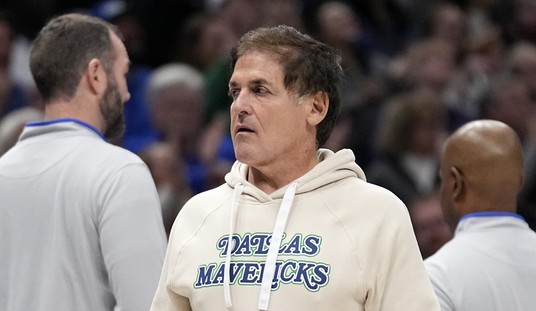After the 2012 election, a not insignificant amount of digital ink was devoted to covering various Republicans’ “sore loser” responses to Barack Obama winning a second term, but as with so many things regarding the Left, there’s a lot of projection here. As we have seen in his responses to the 2014 midterms, Obama himself has an inability to suffer defeat gracefully. In a news conference last Wednesday, he told the nation:
“The American people sent a message, one that they’ve sent for several elections now — they expect the people they elect to work as hard as they do. They expect us to focus on their ambitions and not ours,” the president said during a news conference at the White House. “They want us to get the job done. All of us, in both parties, have a responsibility to address that sentiment. Still, as president, I have a unique responsibility to try and make this town work. To everyone who voted, I want you to know I hear you.”
Had he stopped there, that would have been a very humble and reflective statement, but it seems like he always has to find a way to make himself look a little better. Although it doesn’t appear to have received as much media coverage as that part of the statement, he added immediately following those words:
“To the two-thirds of voters who chose not to participate in the process yesterday, I hear you too.”
These were Americans who, for whatever reason, made the decision not to have their voices heard, but beyond that, it would be a mistake to say all those who didn’t vote don’t reject Obama’s policies. We know that turnout was lower in many traditionally Democratic areas relative to turnout in Republican areas. We already know that low Democratic turnout helped Larry Hogan to victory in Maryland. At the Cincinnati Enquirer, Dan Horn has done an excellent job breaking down how high turnout in GOP areas offset low turnout in Democratic areas. As an example:
In Cincinnati, a traditional Democratic stronghold that went for FitzGerald, turnout was only 36 percent. With those numbers, Democrats in the city couldn’t offset Kasich’s dominance in the rest of the county.
Meanwhile, Erick Erickson wrote last week about black voters who made a conscious decision not to show up to the polls in Georgia, which certainly worked in favor of Republicans David Perdue and Nathan Deal. He makes note of something that might help explain why:
I have had at least a dozen mothers from inner-city Atlanta come up to me in recent weeks saying they could not stand to see the gains they made for their children undone by their party. They may not have gone out and voted GOP, but they made a conscious decision to stay home. It showed in the lines and it shows in the turn out data.
I think Byron York gets it right when he says that this is probably Obama trying to justify his mandate from 2012 over the 2014 results because more people voted in that election than this one. However, even in 2012, over 40% of the nation did not turn out to vote. Barack Obama won 51.1% of the votes that year, which equates to just under 30% of the total eligible voting population (29.7%, by my numbers), meaning over 70% of voters did not vote for him.
But this has not been the only major instance of Obama’s inability to lose gracefully. As we all know, the President promised to wait on any executive action for amnesty until after the election. With the GOP’s big wins, this changes the debate over illegal immigration in DC (although by how much is debatable). The Associated Press has an excellent account of the tense Friday meeting on the issue between Obama and Congressional leaders from both sides of the aisle. [mc_name name=’Sen. John Cornyn (R-TX)’ chamber=’senate’ mcid=’C001056′ ] (R-TX) offered this description of the President’s mood:
The Republicans’ approach, three days after they resoundingly won control of the Senate in midterm elections, “seemed to fall on deaf ears,” Sen. John Cornyn of Texas said in a telephone interview. “The president instead of being contrite or saying in effect to America, ‘I hear you,’ as a result of the referendum on his policies that drove this last election, he seems unmoved and even defiant.”
However, perhaps the most telling moment of this meeting was the opening of a possible rift between the President and Vice President Joe Biden. As the report explains:
Friday’s two-hour meeting was tense at times, according to a senior House Republican aide. Senate Democratic leader [mc_name name=’Sen. Harry Reid (D-NV)’ chamber=’senate’ mcid=’R000146′ ], about to lose his grip on the upper chamber, barely said a word, the aide said. The aide said at one point as House Speaker [mc_name name=’Rep. John Boehner (R-OH)’ chamber=’house’ mcid=’B000589′ ] was making an argument on immigration, Obama responded that his patience was running out and Vice President Joe Biden interrupted to ask how long Republicans needed. Obama angrily cut Biden off, the aide said.
President Obama has already been dismissive of Congress for much of his Presidency, but now that both chambers are about to fall into Republican hands, he seems more determined than ever to bypass and minimize Congressional powers whenever he can. Obama’s behavior in this meeting is also troubling because we know that Joe Biden is one of the key liaisons and deal brokers at the White House. If the President is behaving like this, how devoted to real compromise is he?
This is nothing new for those of us paying attention. Barack Obama has been acting like this throughout his Presidency, but now we know the people want a different path. Bill Clinton understood this, and we got important acts like welfare reform, but Obama has shown an almost complete inability to work with people who are not his sycophants.
It’s going to be an interesting final two years.













Join the conversation as a VIP Member